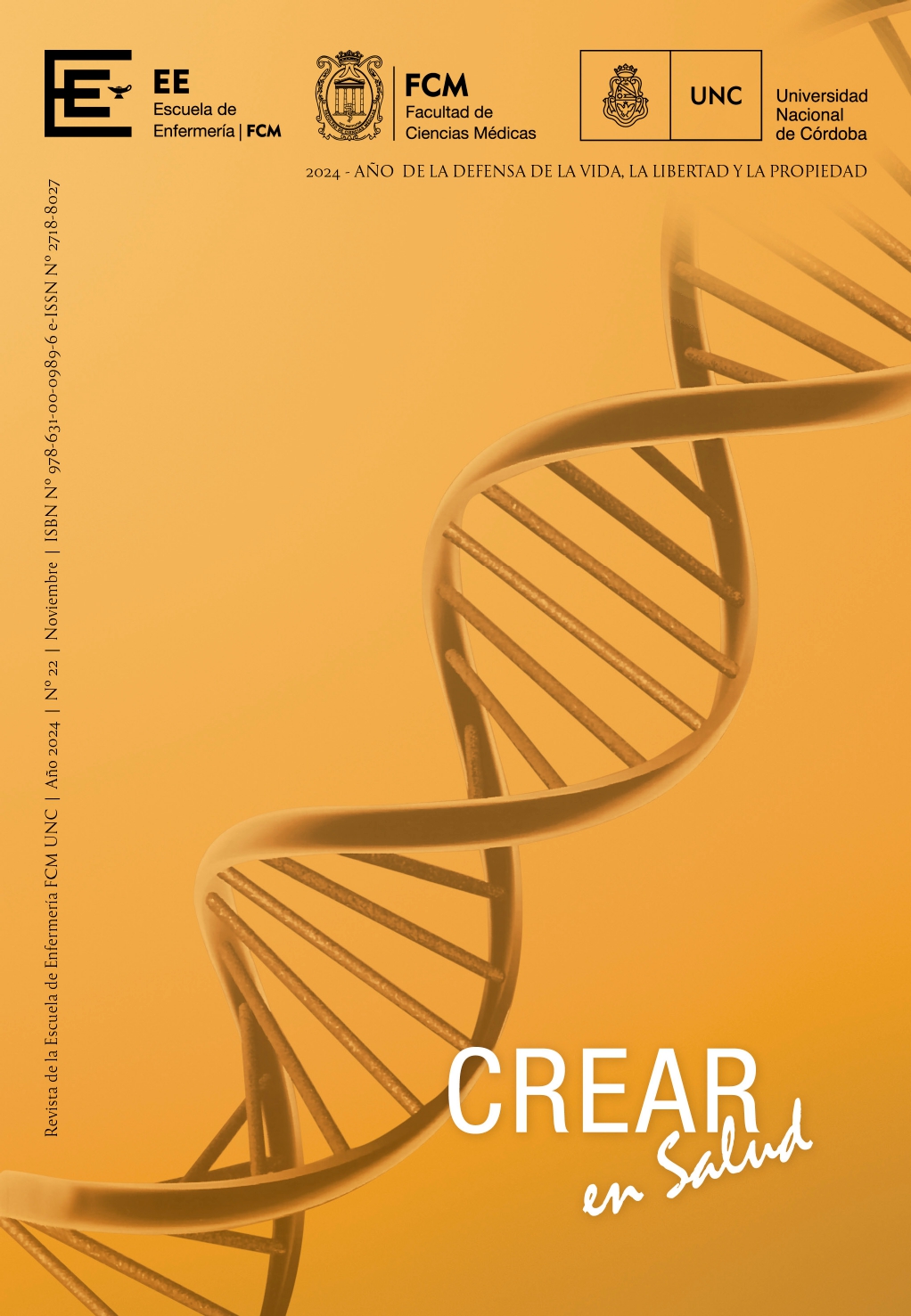Knowledge of the benefits and complications of preoperative fasting
Keywords:
Surgery; preoperative fasting; knowledge; benefits; complications.Abstract
Introduction: Preoperative fasting is a matter of great importance and interest. Traditional concepts about its implementation have changed in the last few years due to scientific evidence. Objective: To determine the knowledge of the benefits and complications of preoperative fasting among the surgical department staff at the Hospital Británico in Buenos Aires. Methodology: A quantitative, descriptive, and cross-sectional study was conducted from July to December 2022. The population consisted of operating room staff, administrative workers, nurses, surgical instrumentation technicians, surgeons, and anesthesiologists (n=40). The information source was primary, collected through a self-administered survey technique. The instrument was a self-administered questionnaire with questions addressing the variable under study. Results: 45% of the operating room staff recognizes that the preoperative fasting supports the surgical process; 15% is aware of its benefits for anesthetic recovery; and 7.5% understands that it prevents bronchial aspiration. 87.5% of participants recognize that surgery cancellations are an indicator of healthcare quality; 77.5% of respondents understand that cancellations allow the institution to effectively manage material resources and prevent malpractice lawsuits; finally, 87.5% stated that preoperative fasting helps prevent cardiac arrest. Additionally, 30% of the staff stated that they do not provide information, while 70% reported doing so in written form, via phone using WhatsApp, or verbally. The participants considered that providing information is a responsibility of all team members. Conclusion/ Discussion: The staff recognizes some benefits of preoperative fasting, but the institution does not fully identify them. The remaining complications are seen as having limited knowledge. They possess knowledge of the complications concerning the institution. 30% of the surveyed staff report that they do not provide information, as they believe that providing information to the patient is the responsibility of the entire team. Additionally, it was observed that surgeries are canceled because the patient does not complete the preoperative fasting.
References
Anonymus, R. (1848). zu:„R. Jhering, Civilrechtsfälle ohne Entscheidungen. […] Leipzig 1847. Kritische Jahrbücher für Deutsche Rechtswissens- chaft, 23, 78-80. https://dokumen.pub/symbolische-kommunikation-vor- gericht-in-der-frhen-neuzeit-1nbsped-9783428520374-9783428120376. html
Aviles Najera, G. (2021). Descripción del contenido y volumen por ultrasonogra- fía en pacientes pediátricos sometidos a cirugía en el hospital regional. [Tesis para obtener el título de Anestesiología. México]. https://ru.dgb.unam.mx/ jspui/bitstream/20.500.14330/TES01000817498/3/0817498.pdf
Berdaguer Ferrari. (2020). ¿Ocho cosas que nunca haríamos en los cuidados de fin de la vida en Terapia Intensiva? Revista Argentina de Terapia In- tensiva, 37(2). 14-17. https://revista.sati.org.ar/index.php/MI/article/ view/683/810
Carrillo Esper, R., de los Monteros Estrada, I. E. y Soto Reyna, U. (2015). Ayuno perioperatorio. Revista Mexicana de Anestesiología, 38(1). 27-34. https:// www.medigraphic.com/cgi-bin/new/resumen.cgi?IDARTICULO=99353
De Luca, M., Maidana, C. M., Moscardi Pietrasanta, D., Velazquez, S. V. y Ruscitti, P. L. (2019). Duración del ayuno preoperatorio en pacientes con cirugía programada. Revista. Hospital Italiano. B. Aires, (39)3, 77-80. https://www1.hospitalitaliano.org.ar/multimedia/archivos/noticias_atta- chs/47/documentos/93887_77-80-HI4-18-19-Luca%20Milagros-B.pdf
Díaz Pérez, A.,. Vega Ochoa, A., Domínguez Lozano, B., Carrillo González, S. y González Puertas, J. (2020). Factores atribuibles a la cancelación de cirugías programadas. Revista Cirugía y cirujano, (88)4. https://www. scielo.org.mx/pdf/cicr/v88n4/0009-7411-cir-88-4-489.pdf
Federación Argentina de Asociaciones Anestesistas Analgesia y Reanimación. (FAAAAR). (2015). Guías para el ayuno perioperatorio en pacientes adul- tos y pediátricos en procedimientos electivos. 1ª Revisión agosto 2022. https://www.anestesia.org.ar/a/guia_para_la_evaluacion_prequirurgica/146
Guerrero, G. C., Tapia, D. A. L., García, D. S. y Vázquez, A. G. (2020). Ayuno preoperatorio. Revista Multimed, 24(5). http://scielo.sld.cu/pdf/mmed/ v24n5/1028-4818-mmed-24-05-1221.pdf
Imbelloni, L E., Nasiane Pombo, I A., y Borges de Morais Filho, G. (2015). La disminución del tiempo de ayuno mejora el bienestar y la satisfacción con la anestesia en pacientes ancianos con fractura de cadera. Revista Brasi- lera Anestesiología, (65)2, 117-123. https://www.scielo.br/j/rba/a/Gwkz bRvJv47GvBXDTWgyNKm/?format=pdf&lang=es
Marín Castro, M J. (2019). Anemia Megaloblástica generalidades y su relación con el déficit neurológico. Revista Archivos de Medicina, (19)2, 420-428. https://www.redalyc.org/journal/2738/273860963022/html/
Muñoz Caicedo, A. (2019). Causas de cancelación de cirugía programada en una clínica de alta complejidad de Popayán, Colombia. Revista Facultad médica, (67)1, 17-21. http://www.scielo.org.co/pdf/rfmun/v67n1/0120- 0011-rfmun-67-01-17.pdf
Olguín Juárez. (2018). El análisis factorial para aumentar el rendimiento del quirófano y disminuir la cancelación de cirugía electiva. Revista Ciruja- no general, (40)2, 78-86. https://www.scielo.org.mx/pdf/cg/v40n2/1405- 0099-cg-40-02-78.pdf
Downloads
Published
Issue
Section
License
Copyright (c) 2024 Crear en Salud

This work is licensed under a Creative Commons Attribution-NonCommercial 4.0 International License.



